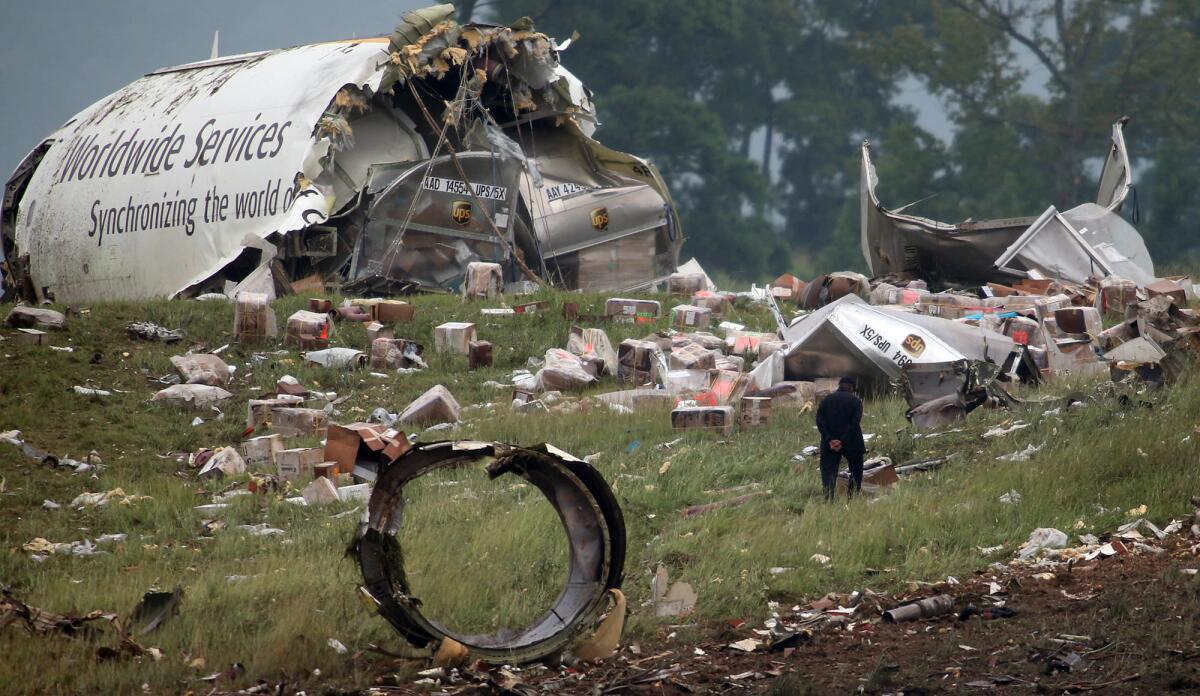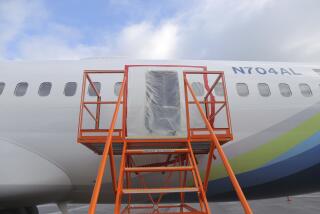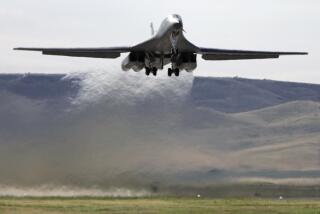NTSB weighs role of fatigue, pilot error in Alabama UPS plane crash

The pilots of a UPS cargo jet killed in a crash in August had complained about the company’s work schedules but also made mistakes shortly before the plane flew into a hillside and burst into flames, a National Transportation Safety Board investigative hearing was told Thursday.
Flight 1354 was en route to Birmingham, Ala., from Louisville, Ky., a hub for the package delivery company. The pilots were completing their third flight since reporting to work the previous day in Illinois, according to information at the one-day hearing. The board is expected to issue its final report on the crash this year.
Captain Cerea Beal Jr. had complained to First Officer Shanda Fanning shortly after the flight left Louisville that federal regulations do not require pilots of cargo planes to be given as much time to rest between work shifts as pilots at passenger airlines, according to the transcript of a recording made in the cockpit.
“I mean I don’t get that,” Beal said. “You know it should be one level of safety for everybody.”
“It makes no sense at all,” Fanning said.
Fanning said she had “good sleep” the previous night but woke up tired anyway.
Regulations governing pilot hours “should be across the board,” Beal said, “to be honest, in my opinion, whether you are flying passengers or cargo or, you know, box of chocolates at night.”
UPS officials cautioned against concluding the pilots were fatigued.
“Crew rest is a complex concept. And for some, it’s easy to jump to the conclusion that a pilot who flies at night must be tired,” the company said in a statement, according to news reports from the hearing in Washington. “It’s also easy to presume that if they are tired, it’s induced by their assigned work schedule. Neither is necessarily accurate.”
On Aug. 14, the pilots were approaching Birmingham-Shuttlesworth International Airport, where the main runway was closed for maintenance. Beal then attempted to land on a second, much shorter runway that wasn’t equipped with a full instrument landing system. The pilots also failed to complete a last step in programming the plane’s computer system for the landing.
When the pilots realized the computer was not available for help, they could have aborted the landing, but they didn’t. The plane was also coming down too fast, 1,500 feet of altitude per minute rather than the recommended 1,000 feet. That put the plane below the minimum safe altitude, officials said.
Moments later, the plane struck the tops of trees and an alert sounded that it was about to hit the ground.
“Oh, did I hit” something, Beal said, according to a transcript of the cockpit voice recorder. Then three seconds later, “Oh, oh God.”
The recording ends as the plane crashes.
The pilots began their work about 9 p.m. the previous day in Rockford, Ill., then went to Peoria, Ill, and Louisville. They were finishing their third scheduled leg when the plane slammed into the Birmingham hillside just before 5 a.m.
ALSO:
Whooping crane euthanized in Louisiana after shooting
Woman indicted in kidnapping of 6-day-old Wisconsin baby
Idaho dairy responds to undercover video showing cow abuse
Follow LATimes National on Facebook
More to Read
Sign up for Essential California
The most important California stories and recommendations in your inbox every morning.
You may occasionally receive promotional content from the Los Angeles Times.











